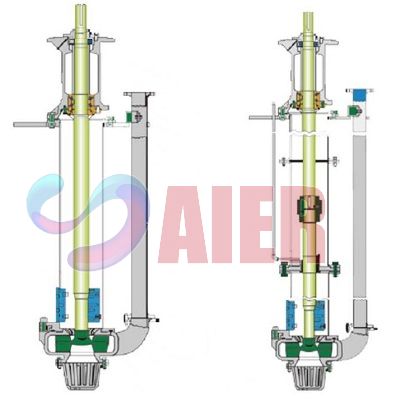Dec . 19, 2024 06:12 Back to list
Reliable High-Performance Pump Solutions for Efficient Wastewater Management and Treatment
High-Quality Pumps for Wastewater Management
In today's rapidly industrializing world, effective wastewater management is more crucial than ever. Wastewater treatment is essential for protecting public health and the environment. One of the most vital components of any wastewater treatment system is the pump. High-quality pumps are indispensable in ensuring the efficient transportation and treatment of wastewater. This article explores the significance of high-quality pumps in wastewater management, their types, features, and the benefits of investing in a reliable pumping system.
The Importance of Wastewater Pumps
Wastewater pumps serve the critical function of moving wastewater from one location to another within treatment facilities. This movement is necessary for various processes, including preliminary screening, biological treatment, and final effluent discharge. High-quality pumps are designed to handle the solid waste, chemicals, and other contaminants present in wastewater. If the pumps malfunction or underperform, it can lead to severe operational issues, including spills, environmental contamination, and costly repairs. Therefore, choosing the right pump is vital for the reliability and efficiency of wastewater treatment facilities.
Types of Pumps for Wastewater
There are several types of pumps commonly used in wastewater management. Each type has its unique features, applications, and advantages, making them more suitable for specific tasks.
1. Submersible Pumps These pumps are designed to operate underwater, making them ideal for applications where the wastewater level is high. Submersible pumps are efficient in handling solid waste and have a compact design, reducing the need for large above-ground installations.
2. Centrifugal Pumps Centrifugal pumps utilize a rotating impeller to move wastewater. They are widely used due to their ability to handle large volumes of liquid and their efficiency in transporting water. These pumps are often used in applications where low shear and consistent flow are critical.
3. Progressive Cavity Pumps These pumps are suitable for transferring thicker slurries and fluids with high solids content. They work by moving fluid through a helical rotor, making them ideal for handling wastewater containing heavy solids.
4. Diaphragm Pumps Known for their ability to handle viscous and abrasive fluids, diaphragm pumps are often used in applications that require precise control over flow rates and pressures. They are particularly useful when dealing with hazardous or chemically aggressive wastewater.
Features of High-Quality Wastewater Pumps
high quality pump for wastewater

Selecting a high-quality wastewater pump involves considering various factors and features that can influence performance, longevity, and operational efficiency. Key features to look for include
- Durability Wastewater pumps must withstand harsh environments, including corrosive chemicals and abrasive solids. Pumps made from high-quality materials, such as stainless steel or resistant alloys, offer enhanced durability.
- Energy Efficiency Energy-efficient pumps save money over time and reduce the environmental impact of wastewater treatment processes. Look for models that meet or exceed efficiency standards.
- Ease of Maintenance High-quality pumps should allow for easy access to components for maintenance and repairs. This minimizes downtime and extends the lifespan of the pumping system.
- Advanced Controls Modern pumps come equipped with advanced monitoring and control systems that allow operators to adjust settings and detect issues before they escalate into major problems.
Benefits of Investing in High-Quality Pumps
Investing in high-quality wastewater pumps brings numerous benefits to treatment facilities. Firstly, reliable pumps enhance the overall efficiency of the wastewater treatment process, ensuring that all stages of treatment run smoothly. This efficiency translates into lower operational costs, as effective pumps require less energy and fewer repairs.
Moreover, high-quality pumps help in mitigating environmental risks. By preventing leaks and malfunctions, these pumps ensure that wastewater is treated effectively, thus protecting local ecosystems and public health. Furthermore, the deployment of robust pumping systems can improve regulatory compliance, as facilities are better equipped to meet local and federal standards for wastewater treatment.
Conclusion
In conclusion, high-quality pumps are a fundamental element of effective wastewater management. By investing in robust, efficient, and durable pumping systems, wastewater treatment facilities can ensure reliable operation, cost savings, and environmental protection. Whether through submersible, centrifugal, or diaphragm pumps, the goal remains the same to effectively manage wastewater in a sustainable manner. As industries continue to evolve, so too must the technologies we employ, making the choice of pump not just a matter of necessity but of responsibility.
-
High Quality Slurry Pump Seals Reliable China Suppliers & Manufacturers
NewsJun.24,2025
-
High Quality Portable Submersible Slurry Pump Supplier & Manufacturer from China
NewsJun.10,2025
-
Slurry Pump Parts Manufacturer – High Quality Rubber Spare Parts from China
NewsJun.10,2025
-
High Quality 1/3 HP Submersible Sump Pump with Vertical - Reliable Supplier & Factory Price
NewsJun.10,2025
-
High-Efficiency Centrifugal Slurry Pumps India
NewsJun.10,2025
-
High Quality Warman Centrifugal Slurry Pump Suppliers & Factory
NewsJun.10,2025
